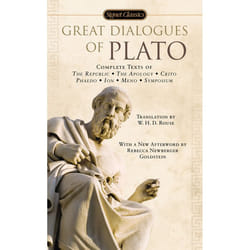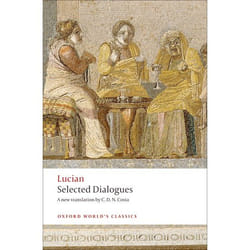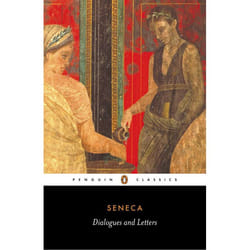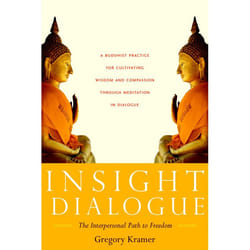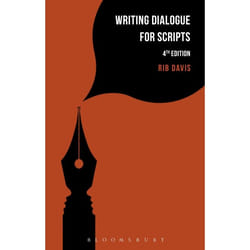
ISBN Selected Dialogues of Plato
ISBN Selected Dialogues of Plato, Classics, English, Paperback, 352 pages
Similar Products
Product Information
Selected Dialogues of Plato
Benjamin Jowett’s translations of Plato have long been classics in their own right. In this volume, Professor Hayden Pelliccia has revised Jowett’s renderings of five key dialogues, giving us a modern Plato faithful to both Jowett’s best features and Plato’s own masterly style.
Gathered here are many of Plato’s liveliest and richest texts. Ion takes up the question of poetry and introduces the Socratic method. Protagoras discusses poetic interpretation and shows why cross-examination is the best way to get at the truth. Phaedrus takes on the nature of rhetoric, psychology, and love, as does the famous Symposium. Finally, Apology gives us Socrates’ art of persuasion put to the ultimate test–defending his own life.
Pelliccia’s new Introduction to this volume clarifies its contents and addresses the challenges of translating Plato freshly and accurately. In its combination of accessibility and depth, Selected Dialogues of Plato is the ideal introduction to one of the key thinkers of all time.
About author(s)
Plato, with Socrates and Aristotle, is the founder of the Western intellectual tradition. Like his mentor Socrates, he was essentially a practical philosopher who found the abstract theory and visionary schemes of many contemporary thinkers misguided and sterile. He was born about 429 BCE in Athens, the son of a prominent family that had long been involved in the city’s politics. Extremely little survives of the history of Plato’s youth, but he was raised in the shadow of the great Peloponnesian War, and its influence must have caused him to reject the political career open to him and to become a follower of the brilliantly unorthodox Socrates, the self-proclaimed “gadfly” of Athens.
Socrates’ death in 399 BCE turned Plato forever from politics, and in the next decade he wrote his first dialogues, among them Apology and Euthyphro. At age 40, Plato visited Italy and Syracuse, and upon his return he founded the Academy-Europe’s first university—in a sacred park on the outskirts of Athens. The Academy survived for a millennium, finally closed by the emperor Justinian in 529. Plato hoped his school would train its pupils to carry out a life of service and to investigate questions of science and mathematics. Plato’s old age was probably devoted to teaching and writing, he died in Athens in 348 BCE.
Customer Reviews
Share your opinion on the product or read reviews from other members.



